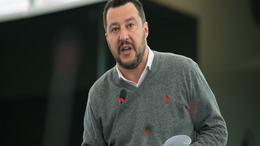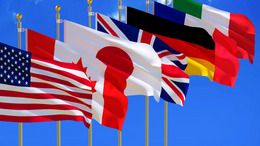Foreign policy with an eye on voters at home
But the fact remains that President Trump needs progress in his bid to share burdens across the Atlantic. After all, swift successes will enable him to deliver on one of his key election promises and thus protect his political standing. His encouragement to Europeans to beef up their contributions will be taken as proof of his negotiating skills. After all his 2016 election widely reflected his reputation as a "dealmaker". Moreover, he sees these successes as necessary to obstruct a democratic victory in the fast-approaching midterm congress elections in autumn 2018, as well as in the presidential elections in 2020.
Following this line of thinking, foreign policy successes could serve to distract from domestic policy problems. The Bertelsmann Stiftung's Sustainable Governance Indicators (SGI) U.S. Country Report 2018, which is not yet published, illustrates the eclectic range of obstacles which lie ahead for the U.S. government, including rising economic inequality, a dwindling middle class and a number of looming foreign policy conflicts. Trump inherited some of these problems from his predecessors. Others, such as the swelling of the already large budget deficit and the reform of the health system, have been exacerbated by the President's election promises and initiatives of the Republican-controlled Senate. The SGI country report therefore states: "The presidency of Donald Trump is itself, realistically, the major challenge facing the United States."
To a greater extent than his predecessors, Trump conducts his foreign policy with a nod to voters at home, rather than reflecting the thinking of the U.S. foreign-policy establishment. For U.S. allies this has kicked off a period of uncertainty about the reliability of their key partner as well as a rethink regarding how to deal with the Trump government. Despite this, Europeans have a vested interest in Trump's domestic success. If he fails to score at home it could spark a further decline in the U.S. interest in Europe. Trump has tapped into a seam of voters that is highly suspicious of international engagement and these attitudes will not disappear at the end of his term of office.
Despite his electorate's skepticism towards American security guarantees, Trump has so far maintained U.S. contributions to European security. Since 2014, the U.S. armed forces have steadily strengthened and expanded their role in the European Deterrence Initiative (EDI), a trend which continued during Trump's time in the White House. On the ground, the alliance therefore demonstrates a sense of unity, a fact which was underscored in 2014 with the establishment of the Very High Readiness Joint Task Force (VJTF) and which continued with the launch of rotating pre-stationing of NATO troops in the east of the alliance in 2016.


![[Translate to English:] Ein Auge mit einem eingepflanzten Computerchip](/fileadmin/files/_processed_/f/6/csm_1058386674future-175620_f73c73e64d.jpg)




